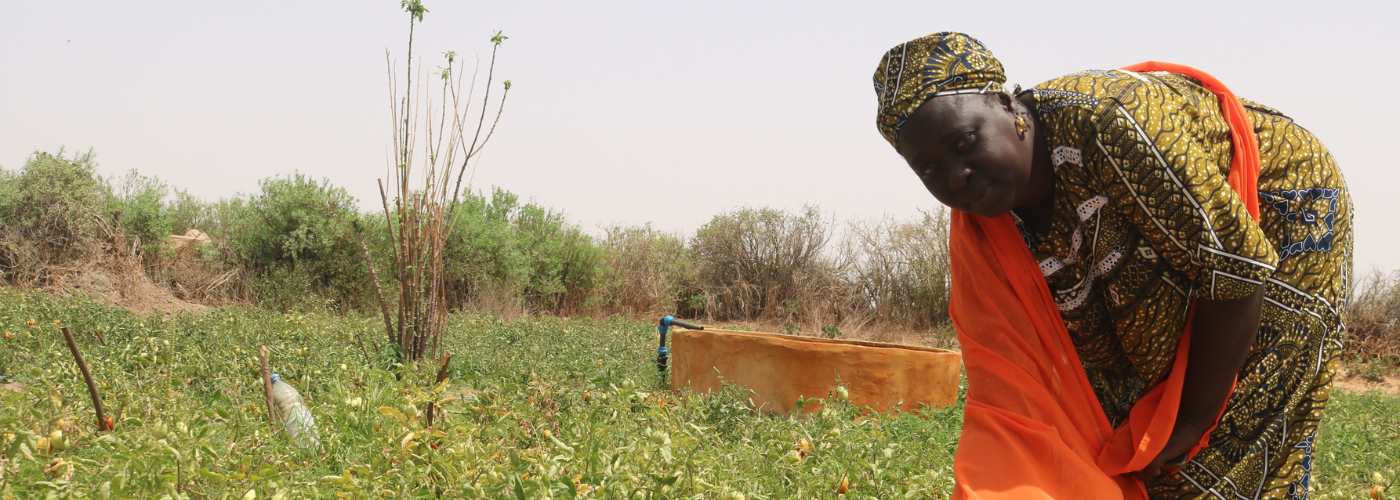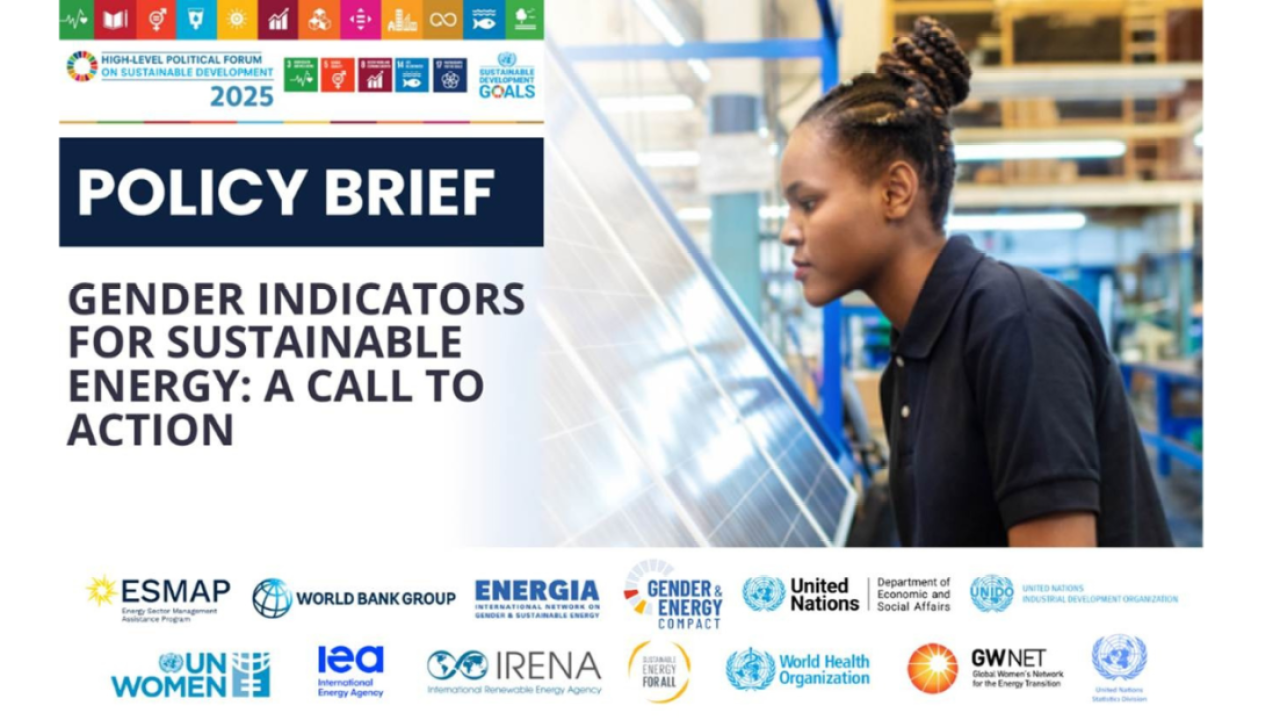By Maïmouna Makouar Diouf, Mercy Corps – Energy 4 Impact
In the community of Fass Ngom, 30 km from Saint-Louis in northern Senegal, Mercy Corps’ energy access platform, Energy 4 Impact, collaborates with ENERGIA to support women engaged in market gardening. A recent visit to Fass Ngom allowed us to meet with 10 women beneficiaries of the Foyré Rewbé 3.0 project (‘women & energy’ in the local Fulani language), which promotes equal access to clean energy for local economic growth and climate-smart development. They shared first-hand the positive impact of installing solar equipment in their market-gardening areas, and the training they receive to improve their agroecological practices.
Agriculture is a vital economic activity in this region, but women, particularly those involved in market gardening, face enormous challenges: from limited access to water, finance and markets, to opportunities to improve their agricultural yields.
Historically constrained to small plots due to insufficient water resources, these women now have opportunities for economic independence through project interventions.
Solar-powered pumping equipment has vastly improved their water access, enabling larger-scale cultivation and higher yields. Business management, leadership, entrepreneurship training, and agroecological practices have further boosted their productivity and income. Collaborative efforts through cooperatives have enhanced their bargaining power, expanded product range, and improved market access.
The adoption of clean energy has transformed their lives, significantly enhancing living conditions and overall well-being. Some have seen up to a 50% rise in production and over a 30% increase in income compared to previous agricultural seasons.
Financial benefits are amplified by savings on fuel expenses previously spent on diesel generators. “We could spend upwards of 500,000 CFA (approx. 760 Euro) per 6-month campaign to buy diesel, and our production was not as high as now”, says one of the women we interviewed. Solar equipment has drastically reduced costs, allowing reinvestment in family well-being and education.
Transformational impact
The impact of these interventions is evident. For instance, Anta Yade’s onion production doubled after she switched from a diesel pump to a solar powered one, enabling her to expand her cultivated area. Similarly, Aminata Seck has seen a remarkable 50% increase in onion production this season, harvesting 10 tons compared to previous seasons.
Both the women agree: “What we earn now ensures we always have food, high-quality food, on our table. It also helps us pay for our children’s education and access to good healthcare”.
“If my child falls ill, I don’t have to wait for my husband to find the money for treatment. And when my children need school supplies or fees, I can sell my produce at the market or use some of my savings to pay for them,” explains Ndeye Fatou Gueye.
Organic products are high in demand
On the day of our visit, it was Modou Gaye, Anta Yade’s husband, who welcomed us to their fields, while Anta was selling the day’s harvest at the local market. After a brief chat with Modou, Anta arrived, beaming, happy to have sold her lettuce, peppers, tomatoes, chilies and mint leaves, in record time.
“My products don’t hang around; they’re very popular with retailers. As soon as I arrive at the market, they get snatched up because people say they are of superior quality and last longer. These are organic products that we were able to produce thanks to the training we received in organic farming techniques, using natural compost made of cattle and sheep dung”, she explains, glowing with pride.
Ripple-effects
Market-gardener Arame Niang is also delighted with her solar equipment, which saves time on field maintenance and boosts income. Before the solar kit, Arame spent seven to eight hours filling reservoirs manually. With the new solar pump, she can now fill them up in just four hours, freeing time for other tasks.
Arame has hired four local women. Her greatest pride today is having them working alongside her, earning a living and supporting their families. “My main goal is to contribute to the development of my village, particularly the women. I aim to cultivate a larger field where all the women in Ndiéyéne Wade village can work together,” says Arame.
Calling for better storage and expanded market opportunities
What the farmers are asking for today is increased support across the entire value chain to address other pressing challenges. They emphasize the need for wider market access beyond local markets, infrastructure for storing their products, and facilities for packaging and processing to expand their offerings.
“When there’s an abundance of produce, prices drop and without adequate storage infrastructure, we’re either forced to sell cheaply or risk spoilage. With proper storage, we could wait for the right time to fetch better prices”, explained several women.
To address these challenges, we are focusing on empowering women’s cooperatives by enhancing their negotiating skills to secure contracts with distributors before production, ensuring fair prices and stable markets. Additionally, we are encouraging cooperative efforts to invest in infrastructure for storing and preserving their produce.
In addition to solar equipment for market gardening, our Foyré Rewbé program promotes freezing technology in the dairy sector, solar dryers for product processing, and biogas on dairy farms. By 2025, we aim to assist at least 300 women entrepreneurs in adopting these productive technologies.
In addition to solar equipment for market gardening, Energy 4 Impact’s Foyré Rewbé program promotes freezing technology in the dairy sector, solar dryers for product processing, and biogas on dairy farms. By 2025, the program aims to assist at least 300 women entrepreneurs in adopting these productive technologies.







